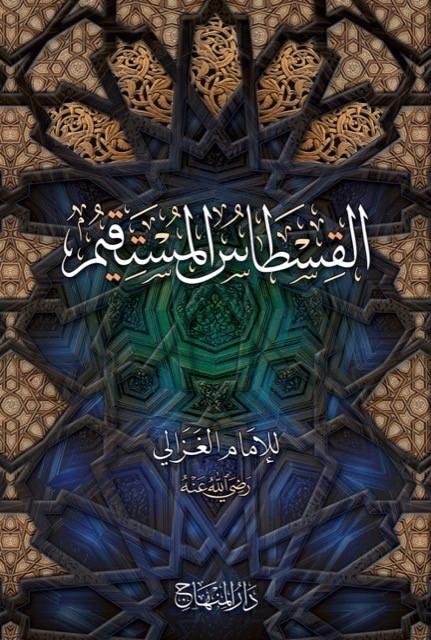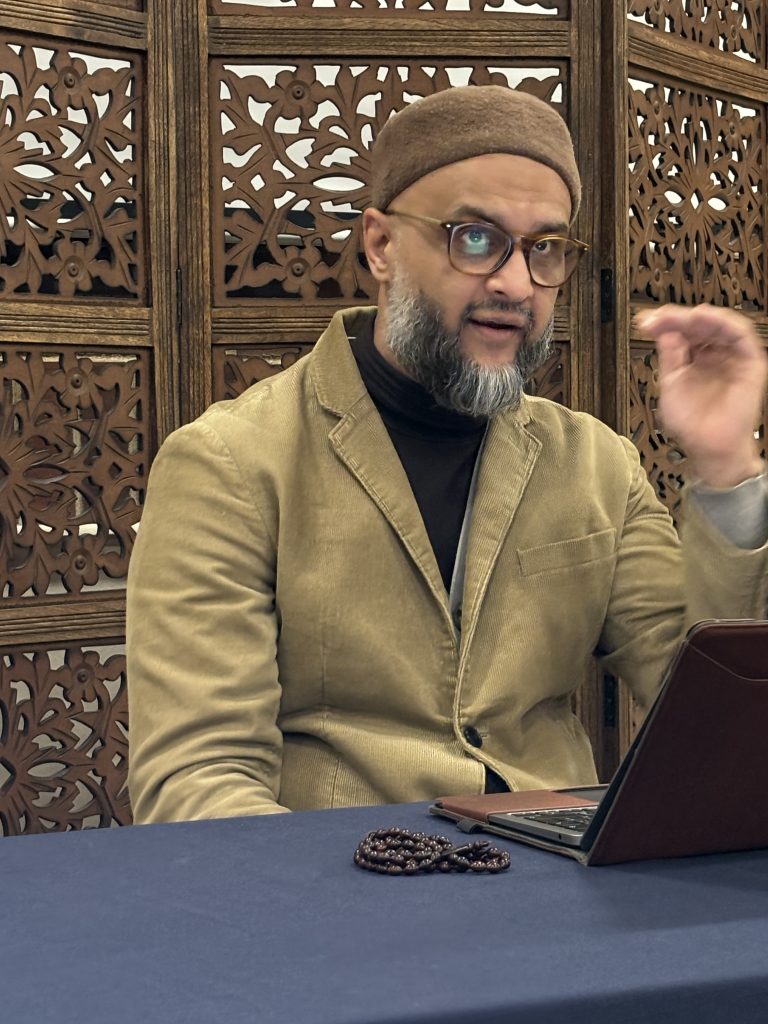al-Qistās al-Mustaqīm
The Just Scales

Module Description
‘The Just Scales’ is a book written by Imam al-Ghazali. It is the first of his three works demonstrating the relevance and importance of propositional logic in the Quran. In the book, Imam al-Ghazali explains how our intuitive reliance on reason allows us to express beliefs and opinions without contradiction. The book is set in a dialogue between Imam al-Ghazali and a follower of the Batiniyya school, which is considered a heretical group by Ahl al-Sunna wa-l-Jamaa because of its extreme esoteric beliefs.
The practical application of constructing well-formed, fair and balanced arguments is underscored by the mention of ‘scales of justice’ in the verse Q57:25.
‘Indeed, We sent Our messengers with clear proofs, and with them, We sent down the Scripture and the scales of justice so that people may administer justice.’
This reference serves as a reminder of the Quran’s relevance in guiding our everyday interactions and decisions. In this verse, messengers were sent with clear proofs, scripture, and the scales of justice so that people may administer justice. By assessing a proposition against the rules of logic, an argument can be considered valid or invalid based on the terms used to express it. The scales will be imbalanced if there is under- or over-compensation. A balanced argument results in a persuasive and incontestable argument.
Module Outline
| Week | Topic | |
|---|---|---|
| Introduction Concerning the Rules of Knowledge | Week 1 | What this work addresses, the way it was written. The use of the term ‘Just Scales’ inferred from the Quran and the use of rational and reasoned argument. The five syllogistic arguments existent in the Quran. |
| Syllogism The major premise | Week 2 | The pure categorical syllogism Syllogism, i.e. a form of mediate inference in which a conclusion (natijah) necessarily results from the two given propositions taken together, one of which is the major premise (al-muqaddamat al-kubra) and other the minor premise (al-muqaddamat al-sughra.) |
| The middle term | Week 3 | The middle term; the term which is common to the two premises in a syllogism and functions as a uniting link between them; it is, however, absent from the conclusion. |
| The minor premise | Week 4 | The minor term, i.e. the term which is used as a subject in the conclusion of a syllogism. |
| The conditional conjunctive syllogism | Week 5 | The conditional proposition consisting of two clauses or propositions called antecedent (muqaddam) and consequent (tali) related to each other conditionally like the statement: “If the sun shines, it is day” |
| The conditional disjunctive syllogism | Week 6 | The conditional disjunctive proposition consisting of two clauses or propositions related to each other as two alternatives or disjunctives which mutually exclude each other like the statement: “Either this number is even, or it is odd” |
| The devil’s scale and the Batiniyya’s use of them | Week 7 | The lack of distinction between a term and its application to two different things i.e. ‘greater’ is applied to God and the sun and other devices |
| The final messenger and scholarly heirs suffice there be Imams | Week 8 | Clarifying the difference between the claim of infallible Imams and the Messenger of Allah and the role of scholarly heirs. |
| Saving from the darkness of disagreement | Week 9 | People are of three categories, and each require an approach that will be relative in order for it to be effective. |
| Forms of analogy and opinion that result in falsity – The Conclusion | Week 10 | The mistaken use of opinion exemplified in the Mutazilite position regarding God must do that which is only beneficial for the slave. And the falsity of analogy epitomised by those made by anthropomorphist. – The conclusion – Being mindful not to fall prey to pseudo arguments. |
Module Text

Become a member today
Join as a member for just £20 per month and access Sacred Study and various other educational initiatives at no additional cost.

Shaykh Thaqib Mahmood
Shaykh Thaqib has travelled to numerous places over the last 10 years in pursuit of sacred knowledge. This began at several deen intensives with Shaykh Hamza Yusuf from whom the impetus to his seeking sacred knowledge belongs. After travelling to Morocco he went to Hadramawt to the village of Tarim where he sat at the feet of the spiritual Masters and jurists including Habib Umar bin Hafiz.
He travelled to Damascus a number of times and studied under Shaykh Muhammad Darwish, Shaykh Abdul Wahaab Shaykh Muhammad al Yaqoubi, Shaykh Adnan al Majd, Shaykh Maree al Rashid and Shaykh Khalil al Sabbagh. His travels also led him to Mauritania to study with Murabit al Hajj, to Liverpool to study with Shaykh Siraj Ud-Din and to Istanbul at the feet of the gnostic and friend of Allah, Shaykh Mahmud Effendi; and studied with Shaykh Ehsaan Hojah and Shaykh Muhammed Ameen Siraj.”
Shaykh Thaqib has been teaching on Sacred Study for 12 years and part of the Fountain teacher for now over 22 years.

Location
INPERSON – Bury Park Community Centre, 161, 161b Dunstable Rd, Luton LU1 1BW
ONLINE – ZOOM – (Details will be provided closer to the time)
Date/Time
Starting – 27th April 2024 for 10 weeks
Saturday – 11.30AM to 12.30PM (In person & Online)
Module Content
Course content will only show once you re logged in.

